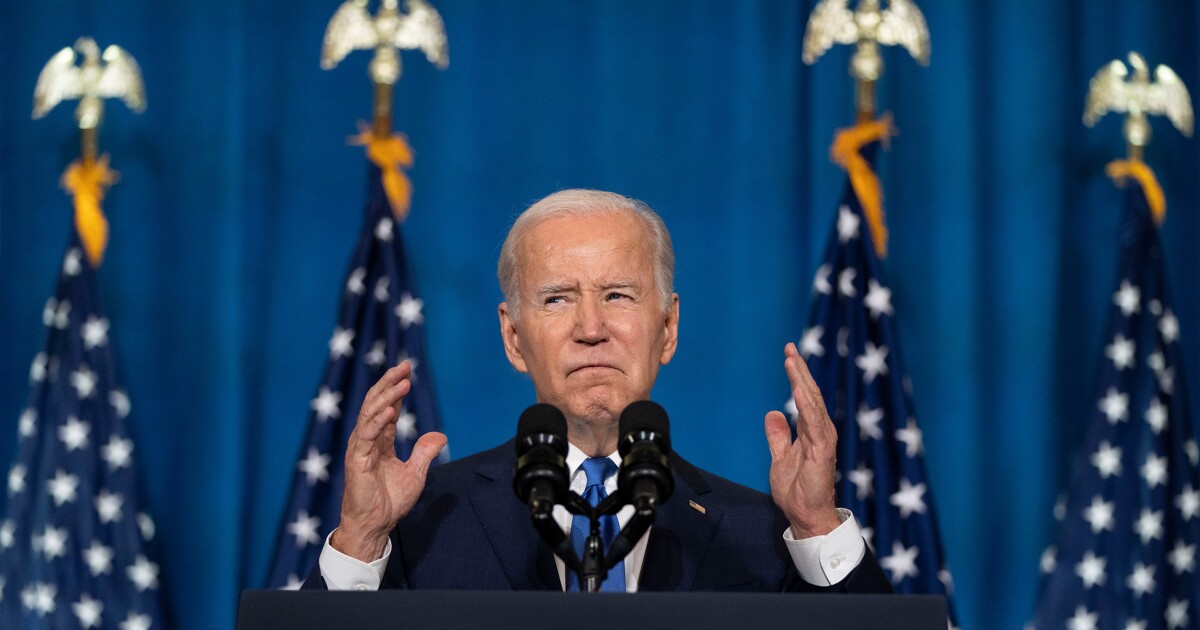

The day after the midterm elections, it was unclear whether President Joe Biden’s path to legislative success had gotten surprisingly easier or considerably more difficult.
That’s because, by the time Biden addressed reporters at the White House about the election results, both houses of Congress were still up for grabs. “We lost fewer seats in the House of Representatives than any Democratic president in his first midterm election in the last 40 years,” he said.
MIDTERMS 2022: TRACKING THE ISSUES THAT MATTER TO VOTERS AHEAD OF ELECTION DAY
As of this writing, Republicans still look poised to win a majority in the House, albeit one that falls well short of expectations. They have a narrower path to capturing the Senate, likely if ever after yet another runoff in Georgia in December. That would make it extremely challenging for Biden, who already struggled with small Democratic majorities, to get any further legislation passed before the 2024 elections and the end of his term.
But Biden and the White House are still holding out hope they will have the votes on Capitol Hill to do more.
“Regardless of what the final tally of these elections show, and there’s still some counting going on, I’m prepared to work with my Republican colleagues. The American people made clear, I think, that they expect Republicans to be prepared to work with me as well,” he said. “But I’m ready to compromise with the Republicans where it makes sense on many other issues and always put the needs and interests of the American people first.”
Biden painted himself as a bipartisan deal-maker, as he had done at various times during his 36 years as a senator from Delaware or then-President Barack Obama’s point man for the Hill during his two terms as vice president. But he also has a long history of partisanship.
During Biden’s presidency, he has displayed both tendencies. He’s passed two major spending bills through the reconciliation process, designed to avoid cooperation with Senate Republicans and pass solely with Democratic votes. His infrastructure law, guns bill, veterans care legislation for toxic burn pits victims, and semiconductors bill were all to some degree bipartisan, however.
“His resume indicates President Biden’s first instinct will be to work with the GOP majority, but that won’t last long,” said Democratic strategist Brad Bannon. “The president and Congress will find little common ground because of the ideological distance between the two parties.”
President Bill Clinton launched scorched earth attacks on congressional Republicans after they seized control of both chambers in the 1994 midterm elections, helping to secure his own reelection in the process. But he also worked with them on welfare reform, delivering the first balanced federal budget since 1969, and cutting the capital gains tax.
Obama had less success working with Republicans after they won the House in 2010 and the Senate in 2014. But his fiscal standoffs with them, which Biden suggested on the campaign trails were likely to be reprised by this administration, did produce some spending concessions as a result of budget sequestration.
That may be asking a lot ahead of a presidential election.
“I see nothing from the last two years that would indicate either the president or Republicans in Congress are ready to usher in a new era of bipartisan cooperation,” Christian Ferry, a Republican strategist who endorsed Biden in 2020, said on Election Day. “The more likely scenario is that the race for 2024 begins tomorrow.”
That could increase pressure for Biden and congressional Republicans to use each other as political foils, with GOP heavyweights Gov. Ron DeSantis and former President Donald Trump lingering in the background.
“Then all hell will break loose as both parties draw sharp contrasts between themselves to set the stage for the presidential campaign,” Bannon said. “Trump’s presidential campaign will poison the atmosphere, intensify conflict, and end all hope for compromise.”
Biden hasn’t formally decided on a reelection campaign but has said he has every intention of running subject to health and family considerations. A final call is expected early next year.
CLICK HERE TO READ MORE FROM THE WASHINGTON EXAMINER
But he already seemed dug in when reporters asked him what he would change in light of exit polls showing deep dissatisfaction with the direction of the country even as Democrats exceeded expectations at the ballot.
“Nothing,” Biden said. “I’m not going to change anything in any fundamental way.”






